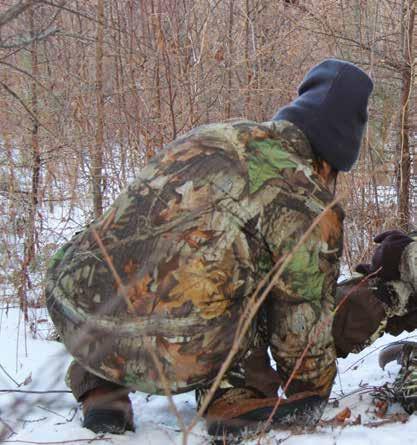
6 minute read
Feature story: Meet the all-female ranger team protecting China's tigers
Qiu Shi's team trekking through difficult terrain, Heilongjiang Province, China
FEATURE STORY
Advertisement
MEET THE ALL-FEMALE RANGER TEAM PROTECTING CHINA’S TIGERS
The ranger profession around the world is male dominated. A survey of public-sector rangers across 28 countries in 2019 found that just 7.5% of respondents were female and only half of the female rangers felt that their efforts were being fairly rewarded.
©Qiu Shi / WWF-China Qiu Shi, Ranger, Dongning Forestry Bureau

Qiu Shi’s team is unique in that they are China’s only allwomen patrol team. They play a crucial role in helping double tiger numbers.
Dongning Forestry Bureau, Heilongjiang Province. This is tiger range territory, deep in the mountains of Northeast China. At first light, six rangers set out on patrol, their breath fogging in freezing air. They will trek for hours across unforgiving terrain, snow underfoot. Their job? To patrol, record data, remove deadly snares and set up camera traps.
My name is Qiu Shi. I am a ranger for the Dongning Forestry Bureau, and today I invite you to join our team of six on patrol. Wrap up, it’s very cold. Where we are is bordering Russia’s Primorsky region, and during the winter even daytime temperatures can reach below -20℃. Amur tigers and leopards live here, roaming between China and Russia. We are here to safeguard them and their forest home.
Most of the team here are second or third generation forestry people. Our fathers and grandfathers walked these forests before us. As a child I couldn’t understand why my father was always away, always busy. Some of my teammates feel the same way.
We walk quietly in the snow, paying close attention for signs of footprints and snares. The snares – metal wire traps set to catch wildlife – are often well-covered. Over the years poachers have grown more cunning. We are continually learning too, but sometimes an accident is unavoidable.
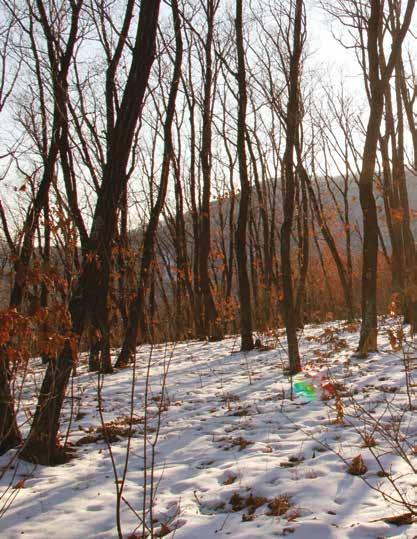
In this unforgiving wilderness with steep mountains and dangerous animals around, even the most simple tasks are difficult. Not long ago one of my peers encountered a wild boar and suffered a bad wound to the thigh. He needed a number of stitches, but fortunately he is recovering.
© Dongning Forestry Bureau / WWF
© Dongning Forestry Bureau / WWF

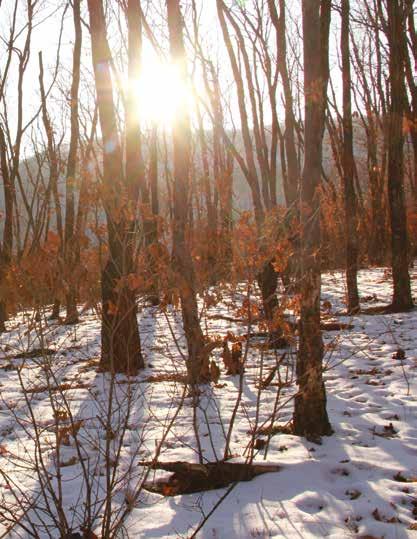

After three hours of walking we arrived in Tubaogou. My colleague, Li Gang, points toward a steep mountainside. One more hour passes before we finally reach the cameras to download the data and change the batteries. Afterward, we pause for a quiet moment, taking in the beautiful, silverbrown landscape of Tubaogou before us. Have you heard of this place? This is the home of the Amur tigers and leopards.
We eat a quick lunch of cold bread prepared that morning and move on, chatting about our families, neighbours and life at home to keep us from feeling tired. After half an hour or so Wu Tong calls out, she has found a set of footprints! Everyone hurries forward and gathers around the pug marks in the snow. Xu Chunmei takes out a tape measure to record the diameter of the prints. After analysing the footprints she concludes it’s a leopard and must be searching for food. We take some photos of them as a record and log the coordinates where we found them, recording data like this is a crucial part of our job.
These moments are the highlights of our days; every trace of a wild animal is a thrill. It may be unforgiving, but when we see roe deer walking among the trees, this landscape feels like a fairy tale.
We march onward, chatting excitedly and singing with new spirit. In quiet moments, bird song and the occasional calls of wild animals keep us company. As light falls we head down the mountain toward home. One by one, we help each other down the slippery slope before reaching the old, right-hand drive car. Our feet are freezing and faces are red as we bundle into the seats. It has been a long day, but everyone is smiling.
© Dongning Forestry Bureau / WWF
Safeguarding nature for generations to come
Our fathers dedicated their youth to these mountains. They loved nature and animals, and they were not afraid of hardship or fatigue. Many people born in the mountains yearn for urban life, but we have a love of nature, and we have inherited the spirit of our fathers. Now we are the protectors of wildlife for the young generation.
©Ola Jennersten / WWF-Sweden
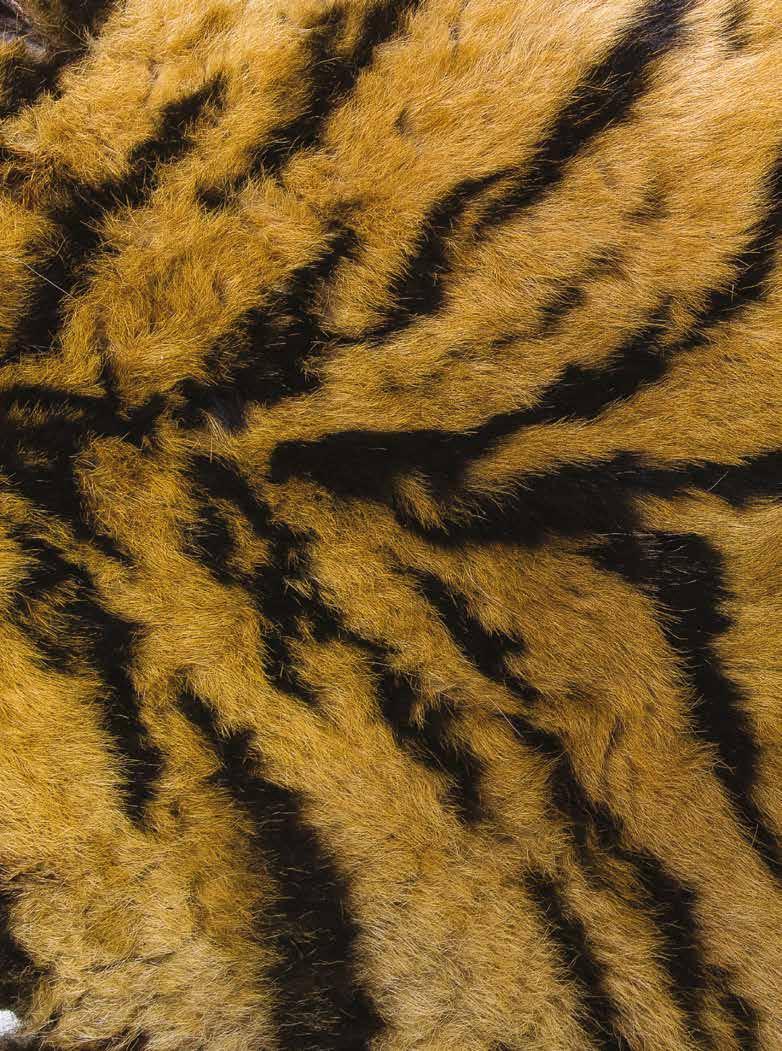
STOPPING ILLEGAL TIGER TRADE
Every year an average of 124 dead tigers are seized, their parts and products trafficked across borders by international criminal networks. Driven by a demand for traditional medicines, health tonics, ornamentation and increasingly as a status symbol, their skin, teeth, bones and other body parts are big business. Poaching will continue as long as there is demand and governments fail to enforce trade bans.
The illegal trade of tigers is still a serious threat to the survival of the species and seizures of tiger parts represent only a proportion of the actual number killed for illegal trade.
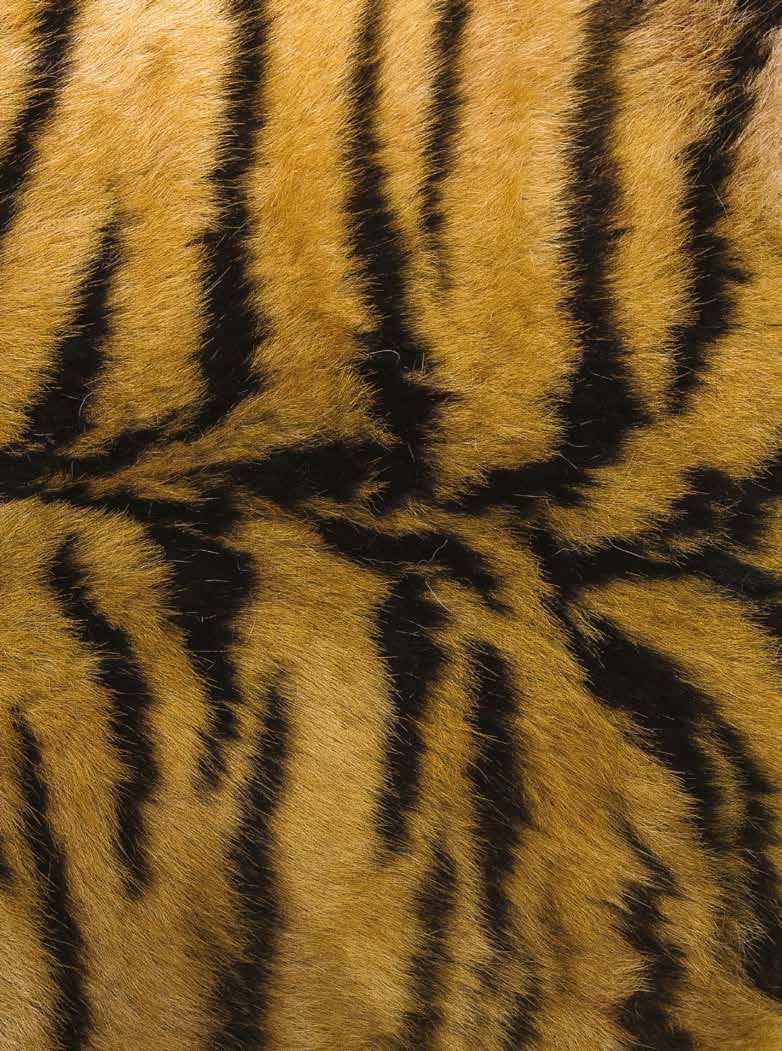
WWF and TRAFFIC, the global wildlife trade monitoring network, are working together with governments, enforcement agencies, the private sector and others to disrupt persistent illegal trade routes, while reducing demand for tiger parts through behavioural change approaches in major Asian markets. We also are working towards a commitment from the governments in China, Thailand, Viet Nam and Lao PDR to phase out tiger farms, which by feeding the trade from captive tigers perpetuate and stimulate demand for tigers, which is threatening those in the wild.
Tiger skin of an illegally killed tiger
©Anton Vorauer / WWF

US HOUSE PASSES MAJOR MILESTONE FOR CAPTIVE TIGERS
In 2020 the popular Netflix docu-series Tiger King: Murder, Mayhem and Madness brought the plight of captive tigers in the US to the screens of millions across the world. It shined a spotlight on the reality for thousands of tigers bred for entertainment across the country and highlighted there are more captive tigers in the US than there are left in the wild.
In a timely moment this same year the US House of Representatives passed the Big Cat Public Safety Act. This would require facilities to obtain a federal permit for big cat ownership thus ensuring transparency of where captive tigers are in the country, in addition to who owns them, when they are sold or traded and what happens to their valuable parts when they die. The passage of this bill marks long-awaited progress and WWF's Tigers Alive Initiative will continue to work to ensure its passage in both the House and Senate under the current Congress so that it finally becomes law.
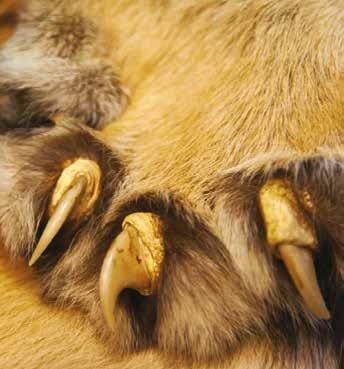
©Ola Jennersten / WWF-Sweden










